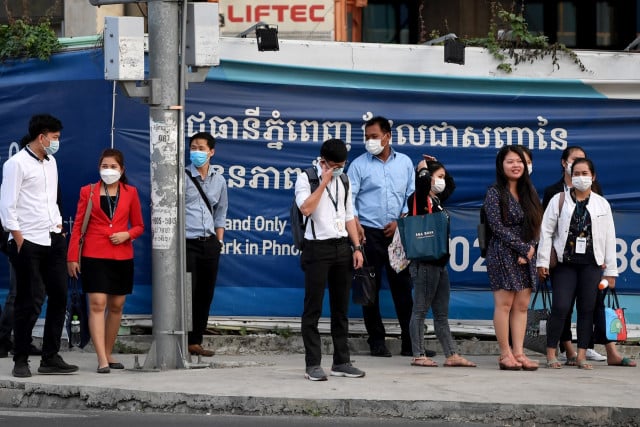“Deprivatizing Sidewalks:” Mission Impossible?

- By Cambodianess
- June 18, 2023 10:00 AM
Will the privatization of public space for commercial purposes or parking finally end? It seems at any rate that the authorities have decided to tackle this problem head-on. As a matter of fact, the Ministry of Public Works and Transport has just announced that a sub-decree to put an end to the encroachment on public space, which sidewalks are for instance, was in the works. The Minister of Interior himself said during an official ceremony in early June that people had to be informed of the proper use of shared public spaces and that clear demarcation must be set between public and private spaces.
All cities in the country, starting with Phnom Penh, are affected by this old habit of considering that the space between one’s house or business and the street is not public space. When cities were only big, quiet, villages without much traffic, this did not really cause any problem. But as the number of cars keeps on going up in the country, the annexation of the sidewalks contributes to the congestion of the cities and the deterioration of the health of those who run their businesses at street level, their noses in gas exhaust fumes.
However, the implementation by the authorities of these commendable anti-encroachment measures promises to be complicated to say the least.
First, one will have to go against force of habit. And this will not be the biggest challenge.
The biggest fight on the authorities’ hands will be to go against the business interests of one and the other.
There are those who have three tables on the sidewalk, which enables them to run a makeshift café or an extension of their coffee shop; those who use that public space as a storage area for motorcycles, refrigerators or other voluminous goods. And then there are banks and other major enterprises that have transformed the whole sidewalk in front of their buildings into private parking areas for their customers. Will the authorities be able to impose on them to free some portions of these areas, which would make it impossible for vehicles to park there and would eventually force them to move? This is a thorny question.
How to manage this project fairly while imposing on all, from the small street businesses, to big retailers and powerful institutions such as banks the respect of those rules concerning public sharing: Therein lies the challenge that the authorities will have to face after years of laxity in the matter.
While many special favors can be discreetly obtained, this will not be the case in this matter. Because everyone will be able to actually see who continues to encroach upon public space at the expense of public interest.















